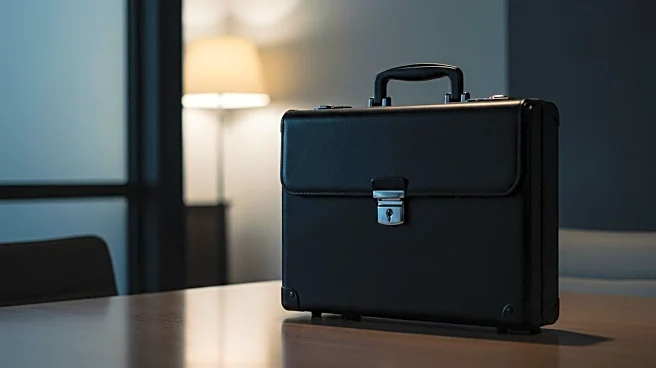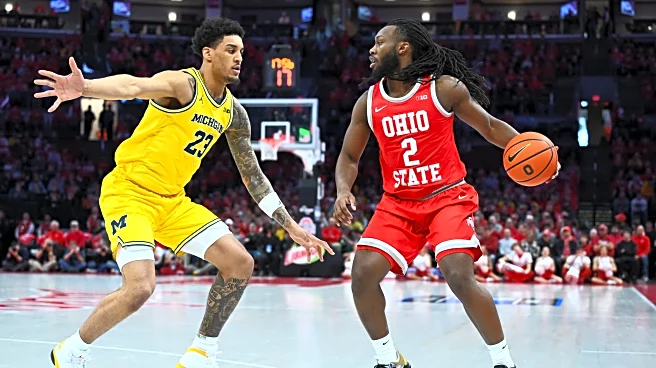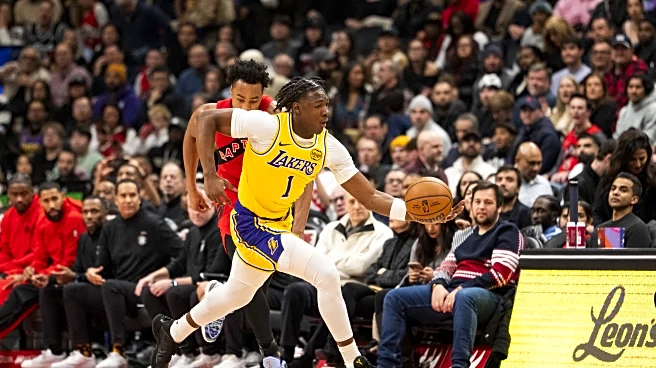What's Happening?
Russian President Vladimir Putin is set to meet President Trump in Alaska for peace talks concerning the ongoing conflict in Ukraine. The summit is marked by heightened security measures, including a peculiar protocol involving the collection of Putin's human waste by his bodyguards. According to investigative journalists Regis Gente and Mikhail Rubin, members of the Russian president's Federal Protection Service (FPS) are tasked with collecting and securing Putin's waste in special bags, which are then stored in a dedicated briefcase. This practice, reportedly in place for years, aims to protect Russian intelligence by preventing foreign entities from analyzing Putin's biological material.
Why It's Important?
The summit between President Trump and President Putin is significant as it addresses the critical issue of the Ukraine conflict, which has global implications. The unique security measures underscore the lengths to which Russia goes to protect its leader and sensitive information. This protocol highlights the broader geopolitical tensions and the importance of safeguarding national security during international diplomatic engagements. The meeting could influence future diplomatic relations and strategies between the U.S. and Russia, impacting global politics and security dynamics.
What's Next?
The outcome of the Alaska summit could lead to new diplomatic initiatives or agreements aimed at resolving the Ukraine conflict. Stakeholders, including international governments and organizations, will closely monitor the discussions for any shifts in policy or strategy. The security measures surrounding Putin may also prompt discussions on international diplomatic protocols and the extent of protective measures for world leaders.
Beyond the Headlines
The practice of collecting and securing a leader's waste raises ethical and privacy concerns, reflecting the extreme measures taken in the realm of international diplomacy. It also highlights the intersection of security and personal privacy in the context of global leadership, potentially influencing future diplomatic protocols and security practices.










